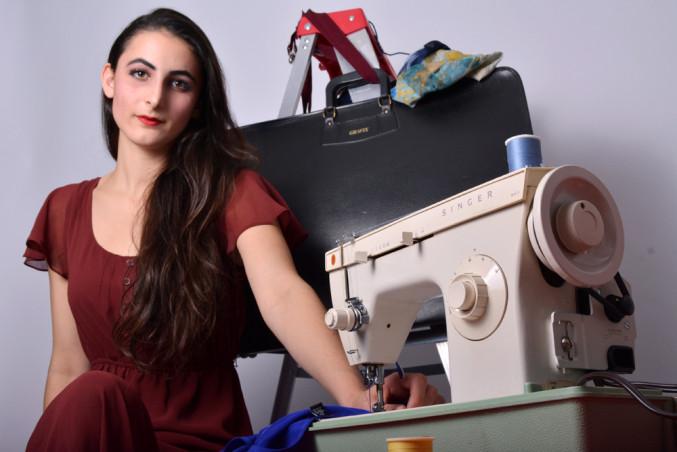By Allison Ridgway
Breakdancing meant business for Patrick Lum, Weiming Yuan and Wei Dong Yuan. The trio busked for spare change at Yonge-Dundas Square just to keep their fashion label dream alive.
Now, they no longer have to busk for funding. Fashion Zone, an accelerator and incubator supporting student-run fashion startups, was launched by the Digital Media Zone (DMZ) and the School of Fashion last Thursday. Similar to the DMZ, the Fashion Zone will provide space, resources, technology and mentorship to participating student entrepreneurs.
Applicants from all Ryerson programs, as well as students from other Canadian and international universities, can now develop their startups with the Fashion
Zone, which will be housed on the third floor of the DMZ. Ryerson’s current Fashion Zone budget is $25,000 for the year.
The Fashion Zone is like a sixmonth to year-long program. It was created because many fashion graduates don’t have the resources to start their own fashion labels.
Many fashion-related jobs are also outsourced overseas.
“In the fashion industry, you have to scream in order to be heard,” said Danielle D’Costa, a third-year fashion design student.
“The market is just so saturated and the resources to start your own business are often inaccessible for students.” D’Costa co-directs the Fashion Zone along with Olga Okhrimenko, also in third-year fashion design.
Robert Ott, chair of Ryerson’s School of Fashion, said the Fashion Zone was born out of the desire to bring together fashion, business and technology students. “This will reposition Ryerson’s fashion program from skill-based to being much more about leadership and how to improve the world through the lens of fashion,” said Ott.
Twenty-nine businesses have applied to the Fashion Zone. Only three fashion labels were selected so far.
Lum and the Don Yuan twins are only second-year business students and have already built a flourishing fashion company, Aeon Attire. After becoming one of the Fashion Zone’s pilot projects, their line of accessories can now be found in stores across Canada.
“The [Fashion] Zone has been really good at keeping us on track and helping us with goal-setting.
We used to have to breakdance every week to try to raise enough money to get the business off the ground, kind of like street urchins,” Lum said. “Now the company pays for our textbooks. It’s a really amazing feeling.” The three men are also giving back to Toronto. Aeon Attire’s Full Circle Scarf program donates a scarf to a homeless youth in Toronto for every scarf sold.
Another Fashion Zone pilot project is Hailey Coleman’s jean company, TT Blues.
Coleman, a business student, worked with professionals to help bring the company, which has been in her boyfriend’s family for 33 years, to Canada from Mexico.
Now, she hopes to use technological innovations created by the DMZ and Ryerson engineering students to help women feel more comfortable while trying on jeans.
“We sell to an older clientele, so I really want to be able to add a tech component that will help women find properly fitted jeans and just make the whole experience of shopping for jeans a lot more comfortable,” Coleman said.
Keean & Co., a clothing company for plus-sized men, was also selected as a pilot project.
“We came into the Fashion Zone with a very different business plan, but… we found out that plussized menswear is a much more undervalued and lucrative market,” said Irfan Hajee, co-founder of Keean & Co. and a business graduate from the University of London.
While the Fashion Zone is still in early stages, DMZ executive director Valerie Fox is optimistic about its future in Canada’s fashion scene.
“I’m so excited to see young people making a change like never before,” said Fox. “I can’t believe how much innovation has come out of the DMZ, and I know we’ll see the same from the Fashion Zone. This is just the beginning.”












Leave a Reply